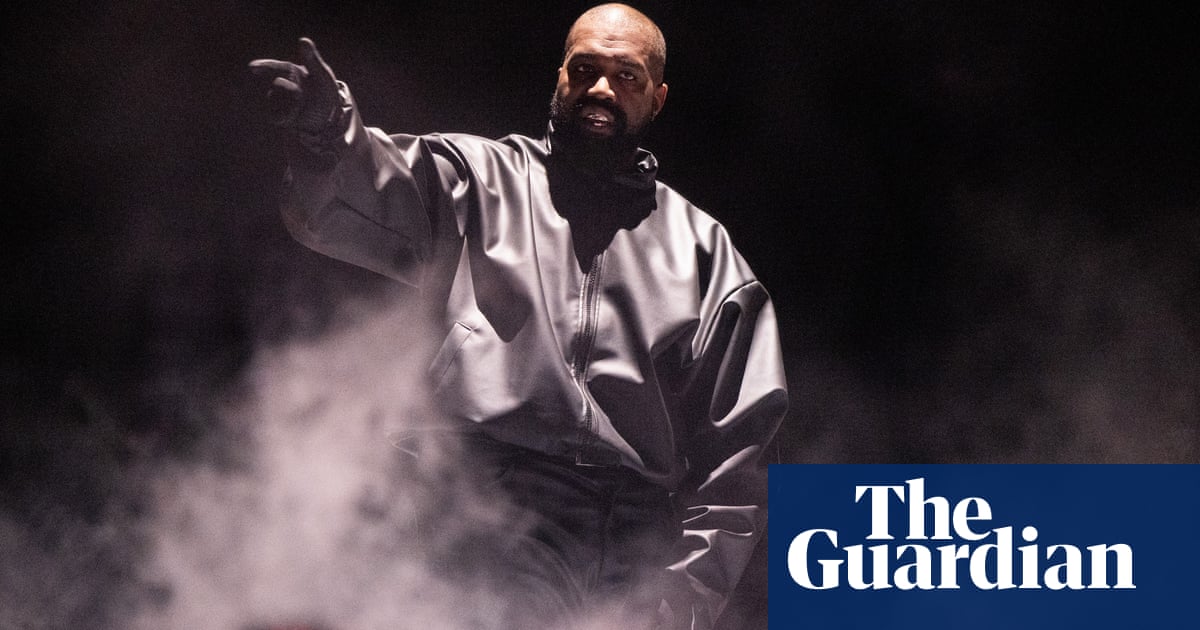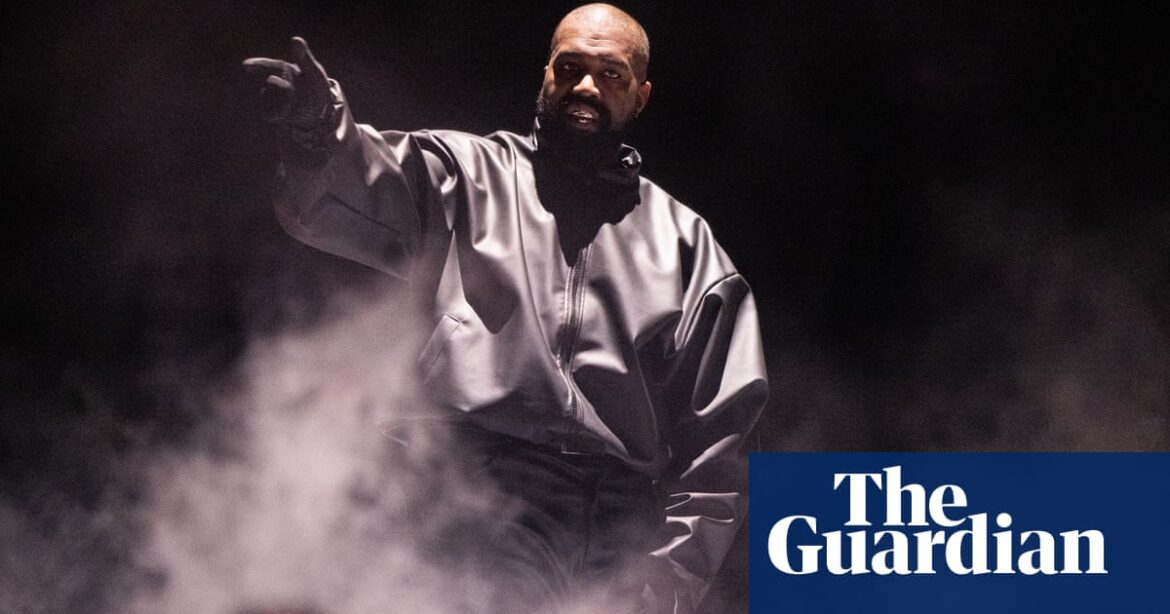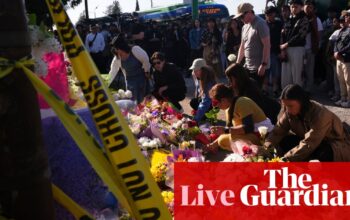
When Ye, the artist formerly known as Kanye West, took to the stage in Haikou on Sunday, his Chinese fans could barely believe it. One of the biggest and most controversial foreign acts in the world had been allowed in by China’s notoriously censorious regime.
Ye’s only China show – all the more surprising for skipping big cities in lieu of the holiday island of Hainan – was announced just days earlier, and more than 42,000 tickets sold out within minutes. It was his first time back in the country for 16 years. In that time the Chinese government’s tolerance for western musicians has diminished, while Ye’s reputation for controversy has grown.
The Communist party strictly censors domestic publications, performances and social media postings. It also controls the flow of art and content from foreign producers hoping to tap the lucrative market of 1.4 billion Chinese people.
Chinese authorities will often require foreign artists to submit set lists and song lyrics before getting approval to tour – and even then acts are often unsuccessful. Under the rule of Xi Jinping the flow of visiting talent has become a trickle – fewer than 40 non-Chinese movies receive approval each year, and few of the biggest musical tourers of recent years – such as Billie Eilish, Coldplay and Taylor Swift – have included a stop in China. In 2017, Justin Bieber was barred from China because of his reputation as a “badly behaved entertainer”. In 2016, Lady Gaga’s entire repertoire was reportedly banned after she met the Dalai Lama.
The decision to allow Ye to perform raised eyebrows inside China, although many noted his year living in Nanjing as a child while his mother taught at a university. A string of incidents including antisemitic comments, suggestions that slavery in America was a choice made by Black people and his endorsement of Donald Trump are among reasons that fans and brands have cut ties with Ye.
Those incidents, as well as his long-running feud with Swift and sexist themes in his song lyrics, were all cited by social media users in China, incredulous that Ye’s show was approved.
Haikou city authorities reportedly received several complaints about the themes of Ye’s work and his history of controversial and offensive statements. One letter – attributed to a Swift fan group but not confirmed by the Guardian – said that Ye’s “lyrics and public behaviour do not meet the standard of cultural and artistic activities in China, and may have a negative impact on society”.
Ye’s name and the show announcement had more than 160m interactions on Weibo in the last few days. One hashtag specifically about his event being approved by the authorities received more than 1.7m, many of them asking simply: “How?”
One commenter said: “The government must regret not bringing in Taylor Swift’s concert, and is using Kanye West to make up for the regret.”
China’s economy is struggling amid a property crisis, youth unemployment and low retail spending, but statistics show a rising domestic demand for live entertainment and an increasing willingness to travel for it. More than 90% of the tickets sold to Ye’s gig went to people who lived outside Hainan province. Regions like Hainan, which rely heavily on the tourism and entertainment industries, appear increasingly frustrated by missing out on big international tours. In July, government advisers in Shanghai said they wished they could bring in the “walking GDP” of artists such as Swift more easily.
“This is the largest and highest-grossing personal concert tour in history, having generated over US$5bn in consumer spending so far” the advisers’ article, published on the Shanghai municipal government’s WeChat account, said, referring to Swift’s Eras tour.
Ye had been scheduled to perform in Taiwan, but less than a month ago organisers announced the show had been cancelled because of “unforeseen circumstances”. It was not clear if those circumstances were related to the apparently last-minute approval to play in China, where the government claims Taiwan as a province and strongly objects to any act that legitimises its sovereignty.
Additional research by Chi-hui Lin
Source: theguardian.com



